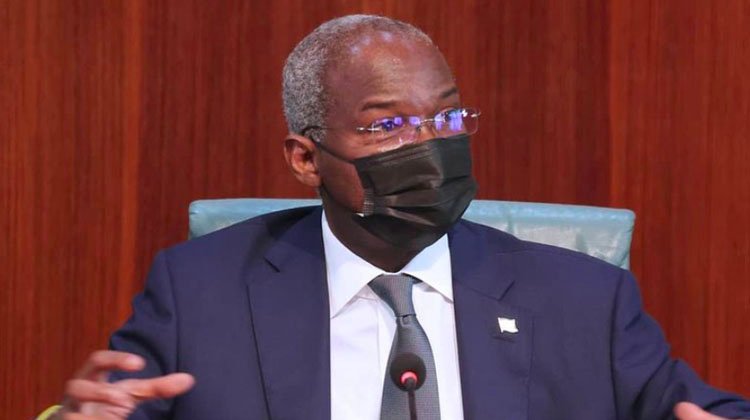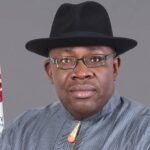
The Federal Government, on Thursday, said the Second Niger Bridge (now named Muhammadu Buhari Bridge) and the Lagos-Ibadan Expressway would be completed before the end of 2022.
This came as the government said there were no existing contracts to impose tolls on federal roads constructed under the Sukuk fund.
The Minister of Works and Housing, Mr Babatunde Fashola, disclosed this to State House correspondents during a special ministerial briefing organised by the Presidential Communications Team, at the Presidential Villa, Abuja.
Fashola also explained that the initial February completion date projection for the Second Niger Bridge failed due to several factors such as the COVID-19 lockdown, #EndSARS protests, and the sit-at-home orders by the Indigenous People of Biafra which delayed works on the Anambra side of the bridge.
He, however, added that the project was already at 91 per cent completion stage.
The minister was in the State House to offer progress reports on key collaborations between the Federal Government and state governments on the implementation of major reforms being executed by the ministry and the Presidential Infrastructure Development Fund.
According to him, the Lagos-Ibadan Expressway and Second Niger Bridge are on course to be completed in 2022.
“The Lagos-Ibadan Expressway will be delivered this year, subject to how we navigate the pricing issues. Second Niger Bridge also this year, while the main carriageway of Abuja-Kaduna-Zaria-Kano Expressway is scheduled for completion by the second quarter of 2023 before the President leaves office at the end of his tenure.
He also blamed the delay of the Anambra side of the Second Niger Bridge on IPOB’s sit-at-home orders.
“On the Second Niger Bridge, one of the challenges we are facing on the Anambra side of the project is the stay-at-home order on Mondays and every day we don’t work, there is time lost.
“On the second Niger Bridge, we are going to shut down the power supply from one of the power plants for maintenance. On Abuja-Kano road, we have to relocate transmission lines; we have to move people who have set up markets along the roads and so on.
“So, these are some of the challenges we are facing and then there are compensation issues and we are working with Governors, who control land in their states to help us overcome these local issues,” the minister said.
Copyright PUNCH.
All rights reserved. This material, and other digital content on this website, may not be reproduced, published, broadcast, rewritten or redistributed in whole or in part without prior express written permission from PUNCH.
Contact: [email protected]





